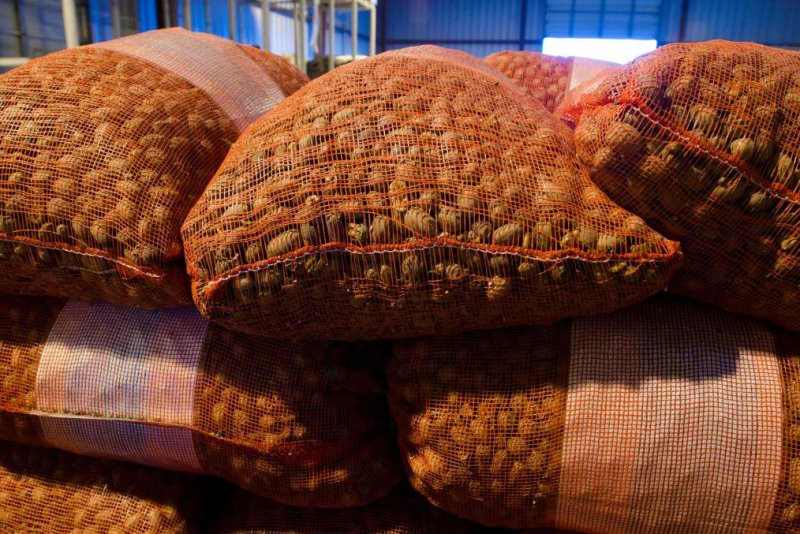India has a 36 percent tariff on pecans, which keeps American producers from selling to the Indian market. Photo by David Mark/Pixabay
EVANSVILLE, Ind., Sept. 26 (UPI) -- As pecan harvest season begins in the Southeast, growers hope that India will remove tariffs on the nut, opening a new market to replace China.
The United States sells only a negligible amount pecans to India because of a high tariff on the nut. The American pecan industry has long sought to remedy this, and its crusade became especially urgent last spring after China placed a high retaliatory tariff on pecans as part of the trade dispute that continues between the two countries.
Before the trade war, China was the top buyer of American pecans.
"Of our national crop, 30 to 40 percent of it was going into China, depending on the year," said Larry Womack, a pecan grower in Texas and the chairman of the National Pecan Federation.
After the trade war began, China's purchases plummeted, Womack said.
In the 2017-18 crop year, China imported nearly 40 million pounds of the nearly 300 million pounds of U.S. pecans produced, according to the American Pecan Council. Between August 2018 and July, that amount fell to 13.6 million pounds. Most of those nuts were delivered to Hong Kong.
Pecan prices fell, as well. In 2017, the average price was $2.33 per pound, according to the U.S. Department of Agriculture. in 2018, it was $1.91.
"More pecans than ever went into cold storage because there was no market for them," Womack said.
The value of the U.S. crop in 2017 was $709 million, according to the U.S. Department of Agriculture. In 2018, that figure dropped to $422 million as prices declined and millions of pounds of pecans were destroyed by Hurricane Michael.
The storm wiped out Georgia's 2018 harvest -- in addition to countless more years as farmers there wait for new trees to mature. Georgia is the top pecan-growing state.
Producers thought that since the storm had sharply reduced America's pecan supply, prices would remain high despite the loss of China's market. Instead, the American supply was bolstered by imports from Mexico.
"Mexico basically replaced the loss production with imports," said Bob Redding, the Washington, D.C., representative for the National Pecan Federation. "It was kind of the perfect storm."
Those affiliated with the industry hope that opening a market in India would offset the China losses. There is some hope this will happen.
The United States and India are engaged in trade negotiations this week. President Donald Trump and Indian Prime Minister Narenda Modi met on the sidelines of the annual United Nations General Assembly in New York on Tuesday, after which Trump told reporters the two countries would have a trade deal "very soon."
Before that meeting, senators from 10 Southern states signed a letter to U.S. Trade Representative Robert Lighthizer, asking him to press India to reduce its pecan tariff.
"Gaining access to new markets for pecans will help stabilize the pecan markets while orchards are replaced and a trade deal is negotiated with China," the letter said.
In addition, industry groups met recently with senators and trade staff members to deliver the message in person, Womack said.
"We got no bad feedback," he said. "We need this, and the sooner, the better. It will take time to develop a market in India."















